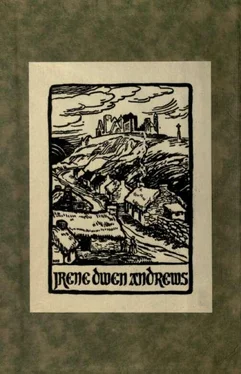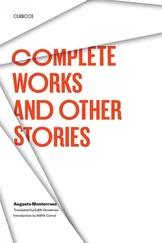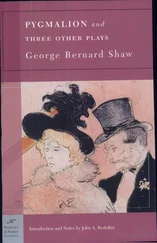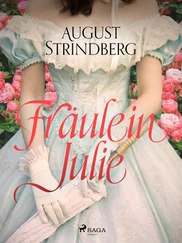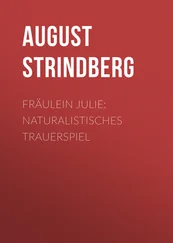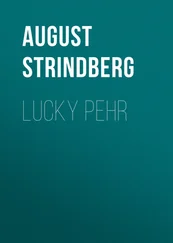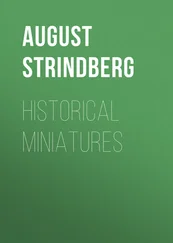August Strindberg - Miss Julie and Other Plays
Здесь есть возможность читать онлайн «August Strindberg - Miss Julie and Other Plays» весь текст электронной книги совершенно бесплатно (целиком полную версию без сокращений). В некоторых случаях можно слушать аудио, скачать через торрент в формате fb2 и присутствует краткое содержание. Город: New York, Год выпуска: 1924, Издательство: Boni and Liveright, Inc., Жанр: Драматургия, на английском языке. Описание произведения, (предисловие) а так же отзывы посетителей доступны на портале библиотеки ЛибКат.
- Название:Miss Julie and Other Plays
- Автор:
- Издательство:Boni and Liveright, Inc.
- Жанр:
- Год:1924
- Город:New York
- ISBN:нет данных
- Рейтинг книги:5 / 5. Голосов: 1
-
Избранное:Добавить в избранное
- Отзывы:
-
Ваша оценка:
- 100
- 1
- 2
- 3
- 4
- 5
Miss Julie and Other Plays: краткое содержание, описание и аннотация
Предлагаем к чтению аннотацию, описание, краткое содержание или предисловие (зависит от того, что написал сам автор книги «Miss Julie and Other Plays»). Если вы не нашли необходимую информацию о книге — напишите в комментариях, мы постараемся отыскать её.
Miss Julie and Other Plays — читать онлайн бесплатно полную книгу (весь текст) целиком
Ниже представлен текст книги, разбитый по страницам. Система сохранения места последней прочитанной страницы, позволяет с удобством читать онлайн бесплатно книгу «Miss Julie and Other Plays», без необходимости каждый раз заново искать на чём Вы остановились. Поставьте закладку, и сможете в любой момент перейти на страницу, на которой закончили чтение.
Интервал:
Закладка:
MR. Y. comes in with a butterfly net and in his shirtsleeves; goes straight up to the bookcase and takes down a book, which he starts reading. The bells ring after service in the local church; the landscape and the room are Hooded with sunlight.
Now and again the hens are to be heard clucking outside. Enter MR. X. in his shirt-sleeves.
Mr. Y.gives a violent start, in turn puts the book down and takes it up—pretends to look for another book on the shelf.
Mr. X.What oppressive weather! I quite think we shall have thunder.
Mr. Y.Really, old man? Why do you think so?
Mr. X.The bells are ringing so dully—the flies are stinging, the hens are clucking, I should be out fishing, but couldn’t find a worm. Don’t you feel nervous?
Mr. Y.[Reflectively.] I? Oh no!
Mr. X.My dear man, you look the whole time as though you were expecting a regular thunderstorm.
Mr. Y.[Gives a start.] Do I?
Mr. X.Well, you’ll be leaving to-morrow with me. What’s the news? Here’s the post. [Takes up a letter from the table.] Ah! My heart beats like anything each time I open a letter—nothing but debts, debts, debts. Have you ever been in debt?
Mr. Y.[Shifting about.] No.
Mr. X.Quite so, then my dear chap, you’ve no idea what I feel like when unpaid bills come in. [He reads letter.] Rent unpaid, landlord on the warpath, wife in despair. And I who sit here up to my ears in gold. [Opens an iron-bound chest which is on the table on either side of which the two men are sitting.] Look here, I’ve got here about six thousand kronors’ worth of gold which I dug up in fourteen days! I only want these armlets here for the three hundred and fifty kronors that I actually require. And with all this I ought to do myself thundering well. I ought, of course, at once to get drawings made, and blocks cut for my book, and then get it published, and then travel. Why don’t I do it, do you think?
Mr. Y.You are afraid of being discovered.
Mr. X.Perhaps that’s it. But don’t you think that a man of my intelligence ought to be able to work it so that he’s not discovered? I just went alone—without witnesses—rummaged about there beyond the hills. Would there be anything strange in my filling my pockets a bit?
Mr. Y.Quite so, but selling would probably be particularly risky.
Mr. X.Ah! ah! I should of course melt it all down and coin good golden ducats —full weight, of course.
Mr. Y.Of course.
Mr. X.You can quite understand that, if I were running a false mint, well, there’d be no need for me to dig up my gold. [Pause.] It’s remarkable, at all events, if another person were to do this, which I can’t reconcile myself to, why I should absolve him, but I can’t absolve myself. I could make a brilliant defence of the thief, prove that gold was res nullius, or nobody’s, that it came into the earth at a time when there was no such thing as property, that it shouldn’t by right belong to anybody else except the first-comer, since the contents of the earth existed a long time before landowners made their artificial laws of real property.
Mr. Y.And you would make your case all the more plausible if, as you say, the thief did not steal from want, but as a matter of collecting mania, as a matter of pure scholarship, because of his ambition to make a discovery. Isn’t that so?
Mr. X.You mean that I shouldn’t get him off if he had stolen out of want? No, that’s just the one case for which there is no excuse. That’s pure theft.
Mr. Y.And wouldn’t you excuse that?
Mr. X.How? Excuse? I couldn’t, for there are no excuses in law. But I must confess that I should find it hard to prosecute a collector for theft, because he made an archaeological discovery in somebody else’s ground which he didn’t have in his own collection.
Mr. Y.Then vanity and ambition are to serve as an excuse where want is no excuse?
Mr. X.And all the same want should be the valid, the only excuse. But it’s like this, I can’t alter, any more than I can alter my own will not to steal in any such case.
Mr. Y.You count it then, as a great merit of yours that you can’t—hm— steal.
Mr. X.It’s an irresistible something in my character, just as the craving to steal is something irresistible in other people, and therefore it’s no virtue. I cannot do it and he cannot refrain from doing it —you quite understand, my dear fellow? I covet this gold and want to possess it. Why don’t I take it, then? I can’t. It’s simply disability, and something lacking is scarcely a merit. That’s what it is. [Beats on the chest.]
[It has rained in streams outside in the country, and now and then the room becomes dark. The darkness is that of approaching thunder.]
Mr. Y.It’s awfully stuffy. I think we shall have thunder. [Mr. Y. rises and closes the door and windows.]
Mr. X.Are you frightened of thunder?
Mr. Y.One has to be careful. [Pause.]
Mr. X.You are a queer fellow. You spring yourself on me here a fortnight ago, introduce yourself as a Swedish American on an etymological journey for a museum.
Mr. Y.Don’t bother yourself about me.
Mr. X.That’s how you always go on when I get tired of talking about myself and want to show you some little attention. That’s perhaps why you’re so sympathetic to me, because you let me speak so much about myself. We became old friends in no time, you had no angles I could knock up against, no bristles to prick me with. It wasn’t just so much that your whole person was so full of a deference which only a highly refined man could manifest, you never made any row when you came home late, never made a noise when you got up in the morning; didn’t bother about trifles; caved in when there was any chance of a squabble—in a word, you were the ideal companion. But you were much too yielding, much too negative, much too silent, for me not to think about it in the long run—and you’re as funky and nervous as they’re made. That looks as though you had a shadow knocking about somewhere. I tell you what—when I sit here in front of the mirror, and look at your back, it’s as though I saw another man altogether. [Mr. Y. turns round and looks in the looking glass.] Yes; you can’t see yourself from the back. From the front view you look like a straight man going about to face his life with his head up, but the back view—no, I don’t want to be offensive —> but you look as though you carried some burden, as though you were flinching from some blow, and when I see the cross of your red braces on your shirt—then you look like one big brand, an export brand on a package.
Mr. Y.[Rises.] I think I shall suffocate, if the thunderstorm doesn’t break soon.
Mr. X.That’ll come in a minute, you just steady on. And then the nape of your neck. It looks as though there were another face there, but of another type than yours; you are so awfully small between the ears that I sometimes wonder what race you are. [It lightens.] That looks as though it had struck the inspector’s place.
Mr. Y.[Anxious.] The inspector’s place?
Mr. X.Yes, that’s what it looks like. But all this thunderstorm business doesn’t matter to us. Just you sit down and let’s have a chat, as you are leaving to-morrow. It’s a queer thing that you, with whom I became quite pally in almost no time, are one of those people whose faces I can’t call to mind when they aren’t there. When you’re out of doors, and I remember you, I think all the time of another friend of mine, who isn’t really like you, though at the same time there is a certain likeness.
Читать дальшеИнтервал:
Закладка:
Похожие книги на «Miss Julie and Other Plays»
Представляем Вашему вниманию похожие книги на «Miss Julie and Other Plays» списком для выбора. Мы отобрали схожую по названию и смыслу литературу в надежде предоставить читателям больше вариантов отыскать новые, интересные, ещё непрочитанные произведения.
Обсуждение, отзывы о книге «Miss Julie and Other Plays» и просто собственные мнения читателей. Оставьте ваши комментарии, напишите, что Вы думаете о произведении, его смысле или главных героях. Укажите что конкретно понравилось, а что нет, и почему Вы так считаете.
